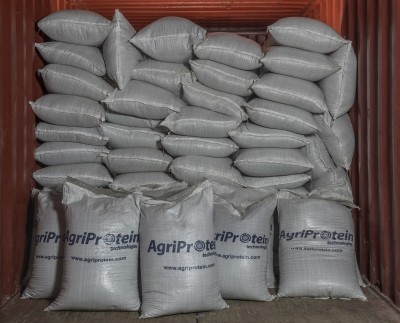US insect meal developer gets Darling Ingredients and Intrexon scale-up power behind it

We caught up with Glen Courtright, CEO of EnviroFlight, to hear about the impact of that joint venture on production:
He told us the new partnership will help EnviroFlight rapidly commercialize and scale-up to meet the growing demand for alternative proteins and lipids in a number of ways:
“We have additional revenue opportunities, access to capital for growth, and can leverage the overhead resources of Intrexon and Darling. We gained new customers and deepened the relationships with many of our existing customers.”
EnviroFlight’s entire management team remains in place, following the acquisition, but its talent pool has also dramatically increased, he said. “The partnership brings in additional expertise in regulatory support, research and development, product testing, access to raw materials, and engineering.”
Courtright said that combination of revenue, resources and talent capabilities “greatly simplifies and accelerates EnviroFlight’s growth plans.”
Existing tie-up with Darling
The Dayton, Ohio located insect meal developer has, in fact, been collaborating with Darling Ingredients since late 2014 to refine its scalable production processes for BSF larvae and upgrade its pilot facility.
It has developed proprietary technologies which enable the rearing of non-pathogenic BSF larvae in an industrially scalable manner for use in animal and fish feed as well as fertilizer products.
It uses the co-product from breweries, ethanol production, and pre-consumer food waste as a feedstock for BSF. The larvae feed off and bioconvert the material. By doing so, the company said, the waste product created by insects after digesting the feedstock becomes feedstuff for omnivorous species such as tilapia, freshwater prawns, and catfish, as well as for poultry, pigs and cattle.
Courtright said EnviroFlight is currently concentrating its efforts on growing its specialty ingredient business, selling larvae meal, live insect larvae, and dried larvae to zoos, specialty pet food distributors, and fertilizer blenders in the US.
It also has a number of applied research programs involving BSF derived lipids for the feed and specialty chemical industries, he said.
US regulatory landscape
EnviroFlight is in the process of preparing a dossier for the US Food and Drug Administration (FDA) and the Association of American Feed Control Officials (AAFCO) for defatted black soldier fly larvae meal.
“Our plan is to expand into the aquaculture and animal feed industries once we receive regulatory approvals through the FDA and AAFCO,” said the CEO.
“In January 2016, the AAFCO ingredient definitions committee published a tentative definition for dried black soldier fly larvae. The AAFCO membership may vote on the definition during the annual meeting in August 2016. Our position remains to concentrate on non-food chain animals with state registrations until we formally receive FDA and AAFCO approvals,” she said.
EnviroFlight will not be entering any new markets in the short term: “Our current focus remains on the US, which is the largest agricultural market in the world,” added Courtright.








